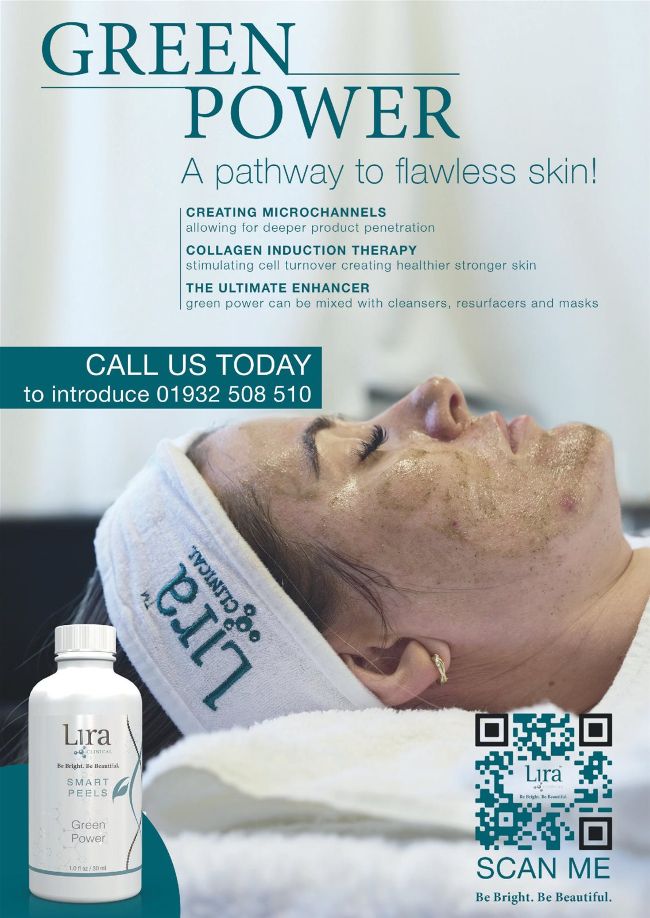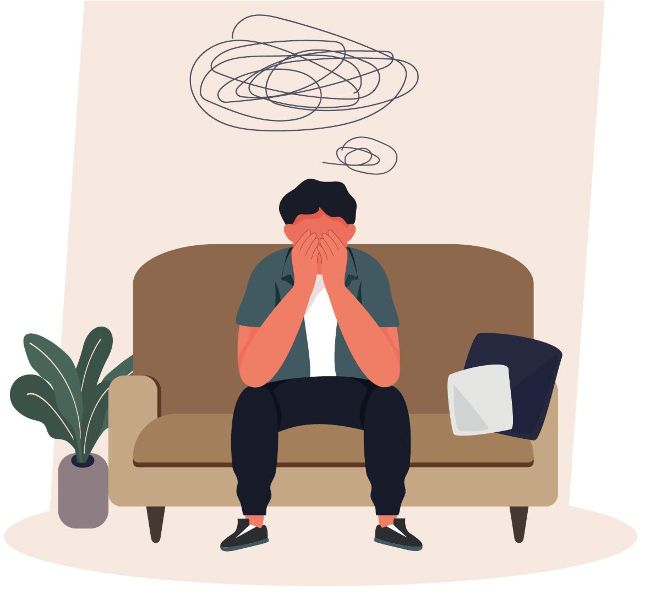MALE MENOPAUSE DEPRESSION
Superintendent pharmacist Rizvan Faruk Batha looks at late-onset hypogonadism
‘Male menopause’ also known as andropause or ‘late-onset hypogonadism’, refers to the progressive decline in testosterone levels in ageing men and an increase in a protein called sex hormone binding globulin (SHBG).1 The condition occurs in a man’s life when physical and emotional changes happen, leading to their mental health and well-being being affected.
Signs of andropause normally start around the age of 40, although levels of testosterone begin to decline around the age of 30, so symptoms related to hormonal changes may show sooner if testosterone dips below a certain level.2 In comparison to female menopause, during andropause, hormonal changes are more gradual and less profound. This change in hormone levels is different for each man, which is why it’s important to get to know your own hormones and pay close attention to any physical or mental symptoms.
The concept of andropause is not universally recognised by the medical community which is likely due to some men having healthy testosterone levels into their latter years. So, unlike menopause, which affects all women to some degree, not every man will experience symptoms of andropause. Also, the lack of education about andropause may mean that some men will attribute the lack of well-being to other factors and not the decline in testosterone levels.3
However, there is some evidence suggesting that average testosterone levels in men have been in decline over the past few decades, although this is still subject to ongoing research and there are varying opinions within the scientific community. Potential risk factors of andropause include lifestyle changes, increased obesity (which leads to high oestrogen levels), sedentary behaviour, poor diet, the side effects of certain medicines and even endocrine-disrupting chemicals in the environment.4
It’s estimated that around 30% of men in their 50s will experience some symptoms of andropause.1 Depression is a common symptom, which can be a primary indicator of a hormone imbalance. Below are some signs of depression which may be linked to a drop in testosterone levels:
• Persistent sadness or low mood. A sense of sadness, hopelessness, or emptiness without any reason
• Loss of interest or pleasure in activities or hobbies that were previously enjoyed
• Decreased energy and feelings of fatigue with an inability to complete normal, daily tasks that don’t require physical exertion
• Irritability and frustration over minor issues or mood swings
• Difficulty falling asleep or staying asleep
• Social withdrawal e.g. isolation from friends and family with no desire to interact’
• Aches, pains and digestive issues, which are not linked to any other medical condition.
Some of these issues, such as a lack of sleep and low mood will subsequently affect lifestyle choices, making it more likely to make poor dietary choices, engage in inadequate exercise or excessive drinking. This domino effect of symptoms may cause depression symptoms to worsen. Men may find it increasingly difficult to manage day-to-day stress, whether that be at home or work, even if they have coped well with these pressures in the past. These feelings of low mood can cause men to lose interest in hobbies and negatively impact their social lives, meaning their support network drastically diminishes, just when they need it most. When depression is being discussed, what is it that’s really being described?
These symptoms are commonly seen in men with low testosterone too, so unfortunately many men may be diagnosed with clinical depression, when in fact, andropause could be the underlying condition.
In terms of brain health, testosterone is one of the most important hormones. It crosses the blood-brain barrier and has been found to have neuroprotective effects, with studies suggesting that lower levels are associated with dementia. It is also responsible for the release of dopamine, the neurotransmitter which is associated with feelings of pleasure.3
In some cases, a drop in testosterone levels could also be a secondary symptom of other health conditions, and these symptoms can be caused by various other factors including medical conditions or psychological factors and will not necessarily be related to a decline in testosterone levels, so it is important to try and establish the cause. Testosterone levels can be checked via a blood test and if found to be low, replenishment with bioidentical testosterone may help. It is important to note that some of the symptoms that are associated with andropause are a normal part of ageing and they may not necessarily be reversible or treatable. If you feel that your day-to-day life has been affected, however, it’s a good idea to seek treatment from a bioidentical hormone (BHRT) specialist. Proper nutrition, rest, stress management and exercise can also all play a part in keeping testosterone levels healthy. Weight training and high-intensity interval training (HIIT) have been shown to improve the age-related decrease in testosterone, as has sufficient sleep (7-9 hours of quality sleep).5
More needs to be done to raise awareness of andropause and its symptoms, as men are less likely than women to talk about their feelings and health, especially if they are experiencing depression. Restoring testosterone levels with bioidentical testosterone can give men back their sense of wellbeing, vitality, and the chance to find pleasure in their lives once again.

RIZVAN FARUK BATHA
Rizvan Faruk Batha (MPharm, PGDip GPP, IPresc, MRPharmS) is the superintendent pharmacist and director of operations at Specialist Pharmacy. He has over 14 years of experience within the pharmacy sector with an extensive portfolio of experience ranging from clinical to pharmaceutical roles. He has helped manage MHRA-licensed GMP facilities and has been involved in quality assurance and quality control roles.Batha has a research background working to deliver clinical trials and has set up research studies as a sponsor pharmacist within many specialities. His broad background of working in licensed and unlicensed MHRA facilities has led him to now manage and drive his team to successfully lead the compounding industry in the UK, increasing access to high-quality personalised medicines, putting the patients at the heart of what he does.
REFERENCES
1. Andropause Treatments & Symptoms | Marion Gluck Clinic [Internet]. [cited 2023 Jul 7]. Available from: mariongluckclinic.com/what-we-treat/men/andropause
2. Nandy PR, Singh D V., Madhusoodanan P, SandhuAS. Male Andropause : A Myth or Reality. MedJ Armed Forces India [Internet]. 2008 [cited 2023Jul 7];64(3):244. Available from: /pmc/articles/PMC4921612/
3. Schwarz ER, Phan A, Willix RD. Andropause and the development of cardiovascular disease presentation more than an epi-phenomenon. Journal of Geriatric Cardiology [Internet]. 2011 [cited 2023Jul 7];8:35–43. Available from: jgc301.com;
4. Martelli M, Zingaretti L, Salvio G, Bracci M, Santarelli L. Influence ofWork on Andropause and Menopause: A Systematic Review. International Journal of Environmental Research and Public Health 2021, Vol 18, Page 10074 [Internet]. 2021 Sep 25 [cited 2023Jul 7];18(19):10074. Available from: mdpi.com/1660-4601/18/19/10074/htm
5. Hayes LD, Herbert P, Sculthorpe NF, Grace FM. Exercise training improves free testosterone in lifelong sedentary aging men. Endocr Connect [Internet]. 2017Jul 1 [cited 2023Jul 7];6(5):306. Available from: /pmc/articles/PMC5510446/
